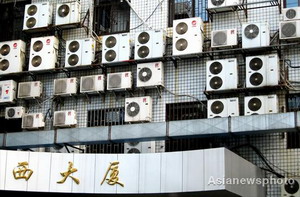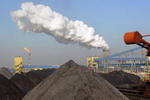Oil spill lessons
Updated: 2011-09-05 15:51
(China Daily)
|
|||||||||||
The order by the State Oceanic Administration (SOA) to ConocoPhillips China that it must stop all production operations in Bohai Bay is long overdue given the two-month long oil leaks and extensive contamination of large areas of Bohai Bay.
An investigation conducted jointly by seven central government departments has confirmed that the subsidiary of the Houston-based US energy giant has seriously violated operating rules. What is even more serious is the lack of attention to the abnormal phenomena that preceded the oil leaks and its disregard for their consequences.
Comparing the information ConocoPhillips China has provided about the oil spill and the measures it has adopted to stop it with the results of the investigation, it is not hard to realize that the firm lacks any basic social responsibility.
When the oil leaks were first revealed, assessment of the extent of the oil spill and the efforts taken by the company to deal with the leaks were based entirely on information provided by the company. The joint investigation organized nearly two months after the oil leaks were first reported has shown that not only is the oil spill worse than the company reported but, despite its assurances to the contrary, it has failed to bring the situation under full control and find and stop the sources of the spills.
That the foreign firm does not need to worry about the penalties it will have to pay for its errors and lies has clearly influenced its response to the environmental disaster it has caused. The highest fine that can be imposed under China's maritime environmental protection law is 200,000 yuan ($30,920), peanuts to the energy giant.
Obviously, China needs to learn a lesson from this incident.
A mechanism needs to be established so that timely investigations and actions can be implemented in the event of any similar accident. The relevant law needs to be revised so that more severe penalties, such as heavy fines or even the revoking of operating licenses, can be imposed on those firms that are held responsible for environmental disasters and/or fail to take effective remedial action.
Oil firms should also be made to contribute to a fund, whose money will be used in a timely manner for clean-up operations.
To our relief, the China National Offshore Oil Corporation, ConocoPhilillips China's partner in the oil field, has finally promised to tighten supervision over its partners' efforts to abide by the decisions of the SOA and to consider setting up a maritime environment fund.
Despite what has been achieved so far, the whole incident is far from over. More needs to be done to let the US firm pay the price for the environmental disaster it has caused in the Bohai Sea and its environs.?













